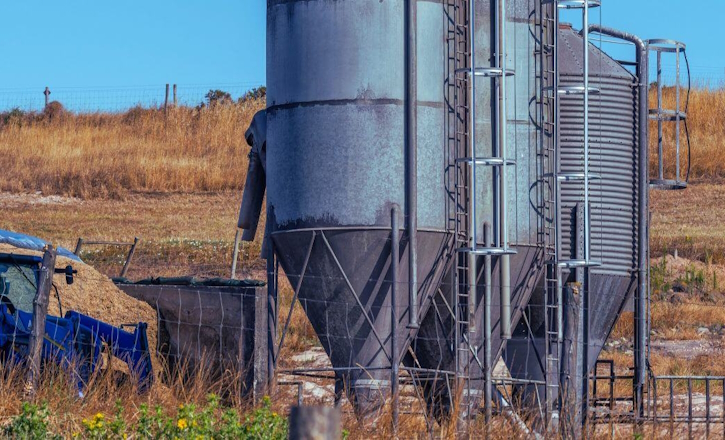
In the realm of modern agriculture, liquid storage containers play a crucial role in ensuring efficient and effective farm operations. These containers, which come in various shapes and sizes, are essential for storing water, fertilisers, molasses, oils, and other essential liquids. Among the different types, cone bottom tanks have gained popularity for their versatility and efficiency.
The Importance of Liquid Storage Containers
Liquid storage containers are indispensable assets for any agricultural operation. They offer a reliable solution for storing various liquids essential for farming activities. Whether it's water for irrigation, fertilisers for crops, or molasses for livestock feed, these containers provide a safe and efficient storage option.
Innovations in Liquid Storage Solutions
As technology advances, so do the innovations in liquid storage containers. Modern designs now incorporate features that improve durability and usability. For instance, many tanks are made from high-density polyethylene, which is resistant to corrosion and UV damage. This ensures that the containers can withstand harsh Australian climates and last longer, providing farmers with a reliable storage solution over the years. Additionally, some tanks come equipped with advanced monitoring systems that allow farmers to track the levels of stored liquids remotely, ensuring they can manage their resources more effectively.
The Versatile Applications of Cone Bottom Tanks
Cone bottom tanks are particularly notable for their utility in agriculture. These tanks are designed with a conical bottom that facilitates easy drainage and complete emptying of the stored liquid. This feature makes them ideal for a range of applications:
Water Storage and Clarification: Cone bottom tanks are perfect for storing water, especially when it needs to be clarified. The conical shape helps in settling out sediments, ensuring that the water remains clean and clear for irrigation or livestock use.
Storing Molasses: Molasses, a byproduct of sugar refining, is commonly used as a feed supplement for livestock. The easy drainage feature of cone bottom tanks ensures that every drop of molasses can be used without waste.
Fertiliser Storage: Liquid fertilisers are essential for crop growth, and cone bottom tanks offer an efficient storage solution. The complete drainage ensures that the fertiliser is fully utilised, enhancing the cost-effectiveness of farming operations.
Oil and Pulp Storage: For farms that produce or use oils and pulps, these tanks provide a safe and efficient storage solution. The conical bottom prevents the buildup of residues, ensuring that the contents are fresh and ready for use.
The Economic and Environmental Benefits
Investing in high-quality liquid storage containers offers both economic and environmental benefits. Efficient storage solutions reduce waste and ensure that every drop of valuable resources, such as water and fertilisers, is utilised fully. This not only cuts down on costs but also minimises the environmental impact by reducing runoff and contamination.
Moreover, by using durable and long-lasting containers, farmers decrease the need for frequent replacements, further contributing to sustainability efforts. Overall, the adoption of modern liquid storage containers is a step towards more efficient and environmentally conscious farming practices.
Choosing the Right Liquid Storage Containers
When selecting liquid storage containers, it's essential to consider the specific needs of your farm. Factors such as the type of liquid being stored, the volume required, and the ease of maintenance should all play a role in your decision. Cone bottom tanks, with their versatile applications and efficient design, are an excellent choice for many agricultural uses.
Liquid storage containers, especially cone bottom tanks, are vital tools for modern agriculture. They provide a reliable and efficient means of storing essential liquids, ensuring that farming operations run smoothly and effectively. By choosing the right containers, farmers can enhance their productivity and sustainability, making the most of the resources available to them.





